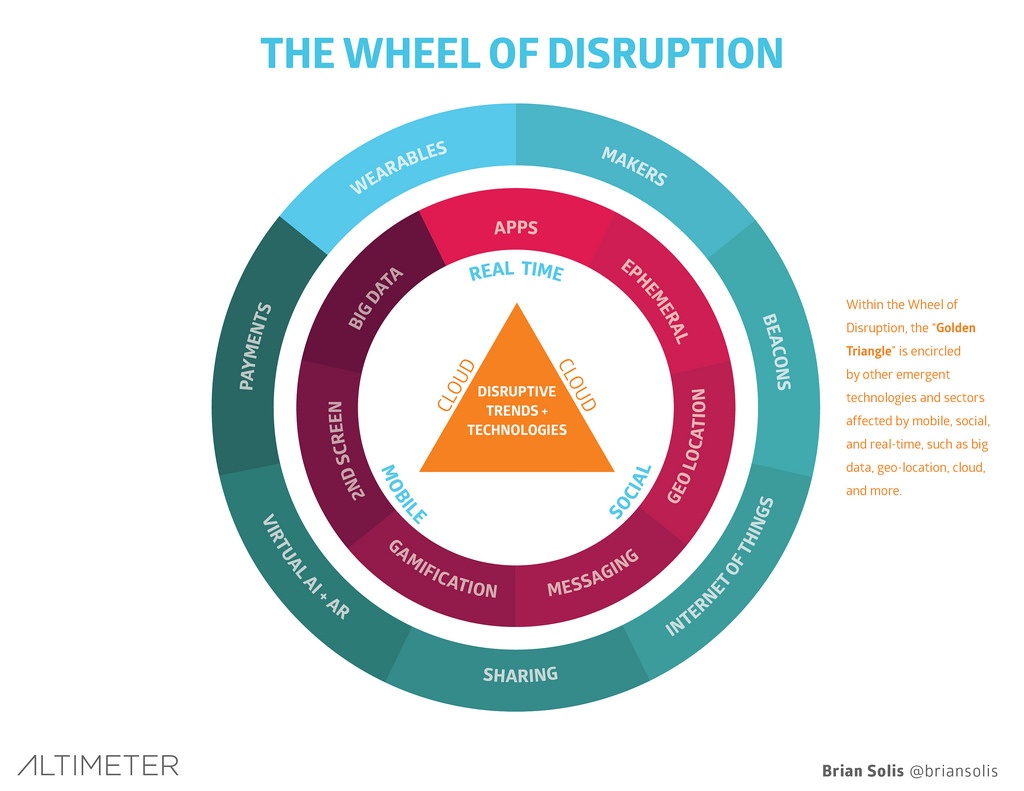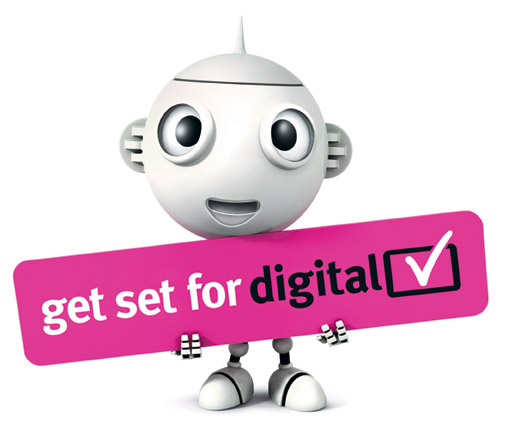5 min read
How Giants are Leading Digital Transformation?
Preetisha Dayal : Jun 25, 2018 12:00:00 AM

-2.jpg?width=600&name=Email%20Newletter%20(1)-2.jpg)
Companies over the globe are experiencing a digital business revolution as they are challenged to enhance business methods as well as produce new opportunities and plans of action. Digitization can broaden the scope of companies, enhance administration choices, and speed the improvement of new items and services. In the meantime, the fast election of technologies can disturb customary business standards too.
How did Major Giants Transformed Digitally?
So, in case you're considering the digital transformation in your company and need a little motivation, read on the 10 case studies to discover how a few of the top companies dealt with the digital transformation.
Love what you read? Then grab a fresh piece of content right here.
1. McDonald's
McDonald's has made major progress regarding digital revolution from quite a while to a limited extent since they procured a team of specialists drove by tech counsel Zaki Fasihuddin. Their approach truly was to achieve a kind of smaller than usual organization from the inside out. So, this organization could then deal with all the conventional and advanced marketing elements from inside into what's to come in future.
Their general goal is to concentrate particularly around customer experience and customer engagement– along these lines, as opposed to concentrating on how fast the meal is (as was critical to the organization's real business preface), automation is currently on the consumer front.
Automated booths are currently the standard in numerous McDonald's. A test which leads to several other fast food chains. In the 2015 Super Bowl, they offered items which corresponded with commercials occurring through the real-time game, which at that point brought about a Tweeting craze.
Also Read: 6 Step Framework to implement Digital Transformation
2. Starbucks
According to COO Kevin Johnson, instead of endeavoring to create a mobile application, Starbucks has formed an end-to-end customer platform tied down around reliability. The organization's fundamental development is their Mobile Order and Pay application. This is generally a customer-first system, as it tends to meet the fundamental needs of the customer - line avoidance, comfort, etc. Combined with their broad loyalty program, the application gives Starbucks the ideal stage to up-offer and market to buyers.
Besides, the app also channels back huge amounts of client information to the organization, enabling them to better comprehend their clients' wants and habits.
Also Read: 9 Elements of Digital Transformation that Guide Digitization
3. Fortune 500
A Fortune 500 technology organization works internationally with numerous business groups all over the different geographic areas.
The business groups were facing challenges in reaching their quarterly sales targets reliably. Thus, the organization required a metrics-driven strategy to make exact bookings expectations and increase general sales execution.
The organization used an AI-powered sales enablement platform and anticipating algorithms to enhance bookings forecasts and recognize 'in danger' teams or those teams that were more averse to reach their business plans. It likewise settled the sales acceleration - the center of excellence, which prompted better deals execution and viability.
Also Read: 5 Applications and Benefits of Artificial Intelligence in Automation
4. Airbus
To address the issues of the developing aviation industry, Airbus expected to fundamentally increase aircraft production while diminishing expenses and enhancing proficiency reasonably. Thus, in order to do so, Airbus had to change its strategy to deal with IT - changing this manufacturing organization into a technology-driven organization.
To reach this objective, Airbus made a team in its IT office called the "Digital Accelerator. One of the Digital Accelerator's first determinations was to perform MuleSoft Anypoint Platform to drive digital alteration and empower an API-first methodology over the company. With this new method to make a composable venture, IT is moving from the back office to driving significant development that will affect the whole business, and at last, convey more value.
MuleSoft Anypoint Platform enabled them to reuse APIs at considerably more prominent scale over the company. The business value eventually involves being capable to produce aircraft faster, with no sacrifice in quality. The Anypoint Platform allowed the company to decrease time to market for IT ventures from astonishingly four months down to 4 - 6 weeks.
Also Read: Benefits and Role of Cloud Computing in Digital Transformation
5. L'Oreal
Cosmetics pioneers L'Oreal were no more peculiar to research and advancement when they started to partner with new companies a few years ago and propelled new beauty organizations. It additionally found a digital officer that positioned just below their CEO and hired more than 1000 digital marketers to add another level of promoting endeavors. The different cooperation endeavors they drove as of now were vital to make the move into digital marketing and advertising.
L'Oréal's cultural variations have prompted unending digital examples of overcoming adversity – among them is Makeup Genius, an application that uses a smartphone's camcorder to enable a client to attempt on several cosmetics items before buying it. Makeup Genius has earned 20 million downloads till now since its launch in 2016.
Also Read: 5 Ways AR is changing the face of Retail
5. Under Armor
Baltimore-based undergarment store Under Armor displayed an imaginative individual well being platform known as "connected fitness" which enabled the organization to find certain trends for health and wellness around the world, (for example, a walking model in AU) and to then to follow those models and focus on their digital marketing endeavors on this particular market.
Read More: How IoT will Escalate the Current Connectivity?
6. AUDI
The company revolutionized the manner in which it offers automobiles. In the year 2012, it launched an innovative showroom named Audi City. Audi City gave a one of a kind brand understanding and permits visitors to investigate the whole inventory of Audi's model range hands-on in the stores situated in downtown areas, where creating large showrooms are not possible.
At Audi City, London deals moved up to 60% from the conventional Audi showroom that previously possessed the site. Additionally, they just stock four cars, decreasing the cost of holding an expansive volume of stock that regularly does not suit a client's criteria.
Also Read: Importance of digital transformation in a disruptive market
7. Deloitte
Deloitte began transforming within by establishing innovative Deloitte Digital Today. It is a competence station where all the digital, technical, and creative competencies get together to help their client base on their digital revolution journey.
In the board discussion at the SAP Hybris Summit LIVE, doTERRA and Alcon Labs described the significance of Deloitte’s partnership to their companies, comprising of Deloitte’s technical and digital knowledge, and additionally their capacity to form the genuine solution. This partnership has facilitated both the companies to evaluate their current technology aspect, improve their digital transformation approach, and develop and combine the new systems simultaneously.
Read More: How Progressive is Blockchain Digital Identification?
8. Siemens
Imposed on taking off 60 million smart meters to support UK environmental change control, Siemens required a more productive method for dealing with their perplexing system of gadgets, sellers, and suppliers.
So, Siemens used APIs to open siloed administrations and data living inside their legacy IBM mainframes and to display this information to their system of service providers. Such a strategy has empowered them to permit web and mobile apps for utilizing this data - adding to a superior accomplice and client experience - as well as managing the downstream probity of these frameworks through rate limiting and throttling API strategies. Moreover, Siemens has possessed the capacity to repurpose these APIs to uncover energy utilization data to administrative experts continuously, dropping off the requirement to manually make and submit reports.
The final outcome? With this approach, Siemens has improved project delivery speed by half. They've chopped down the duration of time required to deliver new venture MVPs to 50%. Also, by doing as such, they've established a framework to help the business quickly advance and reclassify how energy is consumed.
Read More: 10 Key Considerations for Big Data Integration
9. Glassdoor
Secured in over 450,000+ organizations in more than 190 nations and domains. Above 3,000 organizations pay to utilize the organization's recruiting and branding tools (55,000+ free employer accounts). Glassdoor utilized its data for labor statistical surveying in the US.
A portfolio of Fortune's "Best Companies to Work For" organizations beat the S&P 500 by 84.2%, while a relative portfolio of Glassdoor's "Best Places to Work" outflanked the general market by 115.6%.
Digital transformation influences every business in all the industries, no matter how large, established, or old it is. However, digital transformation also has the ability to provide opportunities for increased growth, agility and revenue.
The case studies discussed above of the top companies from different fields are the proof of successful implementation of the digital transformation to improve their business strategies.
Got a new or stuck project? Then reach out to us for a consultation.

The 5 Benefits & Role of Cloud Computing in Digital Transformation
Technologies like artificial intelligence, machine learning, big data, IoT etc. have given rise to innovative ways of doing business thus leaving the...

6 Steps Framework to Implement Digital Transformation in Business
With technologies like big data, artificial intelligence, cloud and mobile disrupting the marketplace, enterprises are facing a substantial threat...



